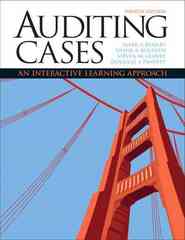Question
Based on the above exchange between the professor and student, what is the primary take-away that you should include in your notes for this case?
Based on the above exchange between the professor and student, what is the primary "take-away" that you should include in your notes for this case?
A) A person who is free to leave but who chooses to remain does not have a viable false imprisonment claim
B) Ms. Hardy was not successful in her false imprisonment cause of actionbecause the appellate court affirmed the lower court judgment in favor of defendant
C) The cause of action in this case is for false imprisonment
D) Ms. Hardy acknowledged that she was not kept against her will by her own testimony
Socratic
Professor: In this case, we have a plaintiff, an employee of the defendant, who was accused of stealing a watch from the department she worked in. She was taken to a manager's office for questioning, where she submitted to a lie detector test. She was held approximately twenty to forty-five minutes.
What cause of action did the plaintiff, Ms. Hardy, bring against the defendant?
Student: False imprisonment?
Professor: Good. Now, does the plaintiff prevail in her false imprisonment action against the store?
Student: No. The appellate court affirms the lower court's judgment for the defendant.
Professor: And why did they do that?
Student: The court said that she was not unlawfully restrained against her will.
Professor: Can you remind the class how the court defines false imprisonment?
Student: The court defines false imprisonment as having two elements: 1) restraint against the plaintiff's will and 2) unlawfulness of the restraint.
Professor: Yes, so of those two elementswhich one does the court believe plaintiff was unable to satisfy?
Student: Ummm....I guess the restraint against her will portion?
Professor: What facts does the court point out that show the plaintiff may not have been restrained against her will?
Student: That she wanted to stay and clarify what was going on; that she never asked to leave; that no threat was ever issued for her to stay.
Professor: So, could the plaintiff have left the room at any point in time and terminated this encounter?
Student: Well, maybe, but she may have suffered the consequences like being fired.
Professor: So is it fair to say that she chose to stay?
Student: Well, yes, I think so. The court says that she testified that she would have followed him voluntarily to the room even if she had known the true purpose of the meeting and that two policemen were in the room. So, yes, I think she choose to stay. She certainly does not seem to have been forced to stay against her will.
Step by Step Solution
There are 3 Steps involved in it
Step: 1

Get Instant Access with AI-Powered Solutions
See step-by-step solutions with expert insights and AI powered tools for academic success
Step: 2

Step: 3

Ace Your Homework with AI
Get the answers you need in no time with our AI-driven, step-by-step assistance
Get Started



